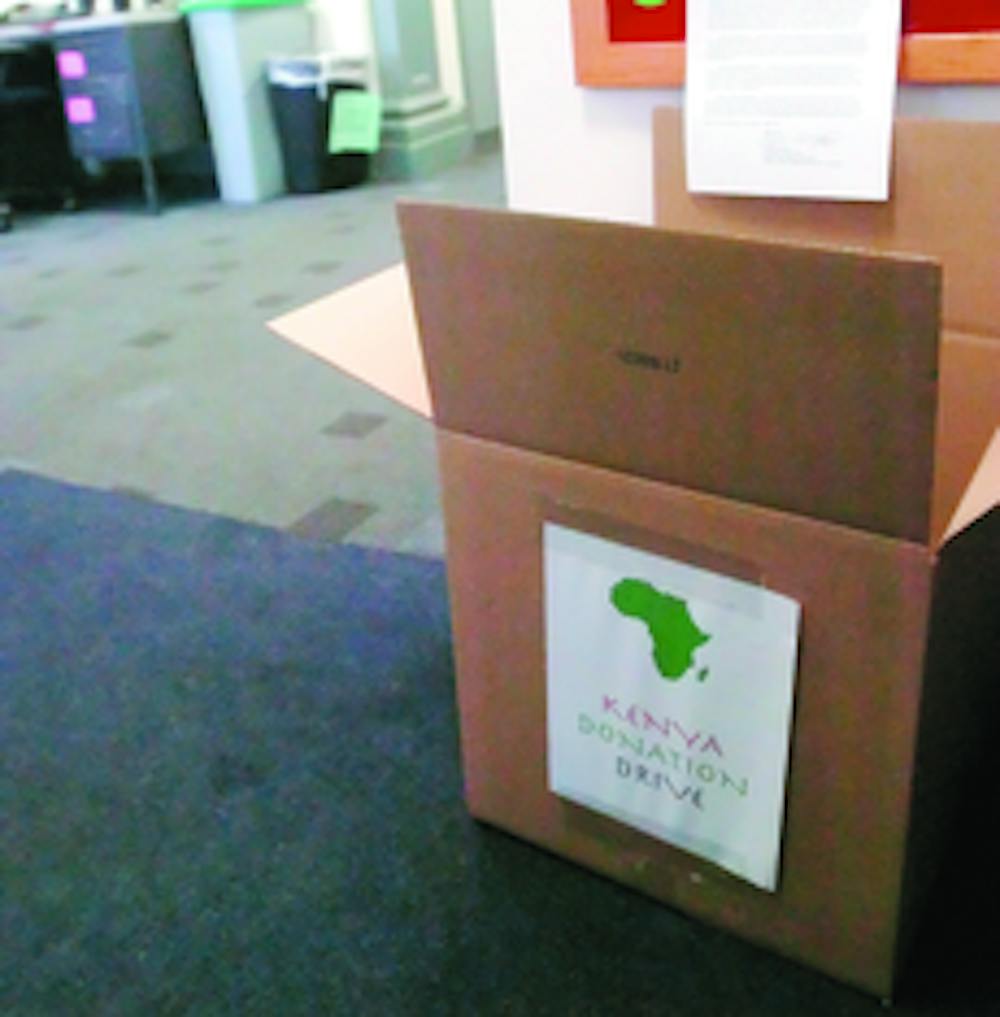
In efforts to aid victims of the Kenyan political crisis, Student Ambassadors of the World is conducting a drive to collect supplies for a rural village in Western Kenya.
Violence disrupted the country following a contentious December election, killing and displacing thousands, until President Mwai Kibaki and opposition leader Raila Odinga reached an agreement last week with the hope of restoring peace.
In Kitale, a rural town in Western Kenya where donations will be sent, villagers can't meet their daily needs with supplies from local markets, said College junior and SAW president Alex Price.
SAW will send donations to the Common Ground Program, a grassroots program in the village that performs a variety of services, including teaching community members organic biology, agricultural techniques, environmental conservation, health awareness, family planning and microfinance.
The donations - which include books, school supplies, non-perishable food, used and new clothes and blankets - are being collected in bins set up last Friday at Hill, Rodin and Ware College Houses, Civic House, the Engineering Building and Starbucks on 34th and Walnut streets.
College junior and SAW Africa president Rachel Crystal also set up a collection bin at the Alpha Chi Omega sorority house and said she would like to begin collecting items at the other sorority houses as well. The sorority has collected "four full containers" of items in the last two weeks.
After Friday, SAW Africa will continue collecting funds. Crystal said they hope to raise $2,000 for the Common Ground Program's clinic, in addition to $4,000 to send to Namunyak Maasai Welfare and Mama Maria Kenya, two Kenyan non-profit organizations SAW regularly works with.
Nursing professor and the United Nations Association of Greater Philadelphia board member Christiaan Morssink warned that donations can sometimes be inappropriate for the region to which they are sent.
But Crystal said she hopes to avoid trouble by only taking items recommended by the Common Ground Program.
Additionally, when a donation arrives in Kenya, "it might not necessarily get to the people that we want it to," she explained, and sometimes items are resold, which can hurt local markets.
Still, Morssink said that a donation drive can help in the short-run, particularly in response to political crisis.
Students are responding to the call for supplies, though many say they are uninspired by the purpose.
Wharton junior Christine Cheng said she plans to make a donation but doesn't feel particularly attached to the cause. "I always liked going through my stuff and seeing what I can get rid of," she said.
Freshman and SAW member Mark Pan, who donated items left in a class for which he is the teaching assistant, echoed Cheng's sentiments.
While he recognizes that the situation in Kenya is "dire," he is not "outraged by the violence relative to all of the other atrocities world-wide due to a lack of 'in-your-face' education and advertising," he wrote in an e-mail.
The Daily Pennsylvanian is an independent, student-run newspaper. Please consider making a donation to support the coverage that shapes the University. Your generosity ensures a future of strong journalism at Penn.
DonatePlease note All comments are eligible for publication in The Daily Pennsylvanian.





